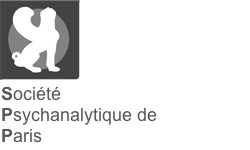|
Résumé :
|
Much has been written about Jacques Lacan’s theory of the four discourses. His idiosyncratic employment of the term ‘discourse’ itself, however, has gone generally unexplored. This article demonstrates how Lacan’s conception of discourse as a structure founded on language and determining modes of relation emerged not only out of psychoanalytic practice, but also by way of a long-running conversation with the French linguist Émile Benveniste. Indeed, Lacan’s conception of discourse cannot be adequately comprehended if Benveniste’s work on the same topic is not taken into consideration. While Louis Althusser, Michel Foucault and others were also at work offering theorizations of discourse in the 1960s, Benveniste was the privileged source, interlocutor and foil for Lacan’s theorizations. Tracking the manner in which the psychoanalyst drew on but also distinguished his perspective from that of the linguist allows us to reconsider the specifically psychoanalytic conception of this too-familiar term.
|




